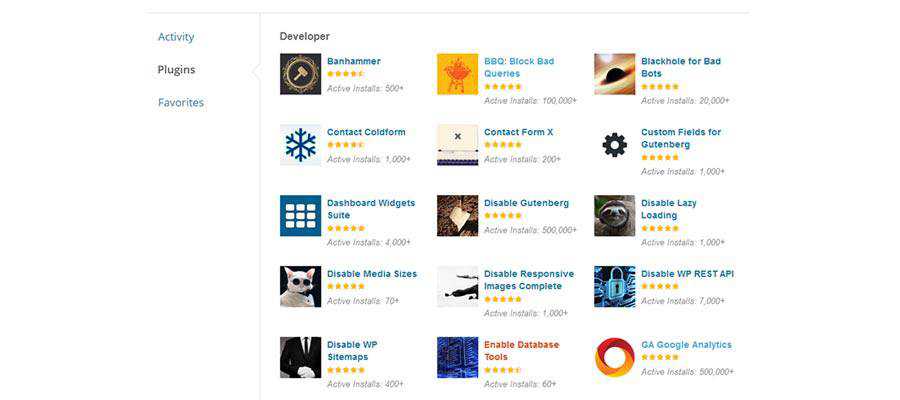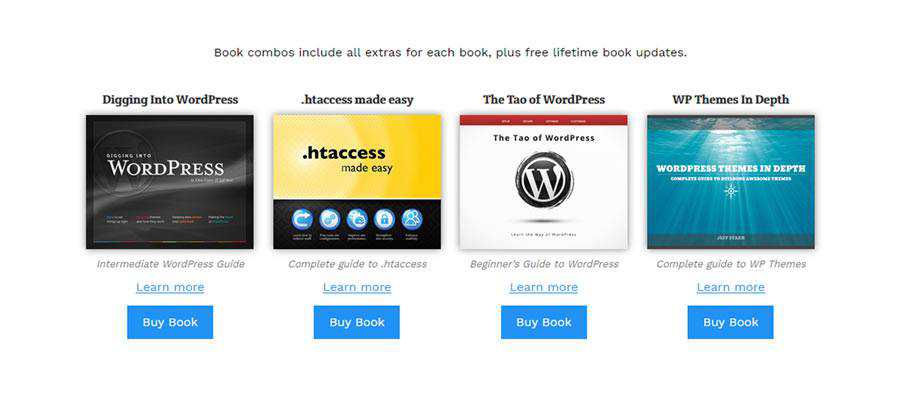Jeff Starr is not the first person to serendipitously find his way into the WordPress community. After all, many of us have discovered and since fallen in love with the CMS. But he has become one of its most prolific and recognizable members.
The author of four books, along with dozens of both free and premium WordPress plugins, Jeff’s work has likely touched more of our projects than we can count. But as I found out, he’s also a man of many interests outside of WordPress. And, like so many of us, he strives to achieve a balance between these passions.
I had the pleasure of chatting with Jeff via email as we discussed his busy life, how he got started with WordPress and his thoughts on the software’s evolution. Note that some portions have been edited for brevity.

How and when did you get started with WordPress? Was there a particular project that piqued your interest?
Back in 2004, I was diving into web design and learning how to build dynamic PHP sites that connect to a database. Around the time I was figuring it all out, I stumbled upon b2/cafelog, which was the precursor to WordPress.
After seeing what it could do, I realized that I really didn’t need to build my own dynamic sites from scratch. Instead I could just install b2 and customize things as needed. It made my life so much easier, saving huge amounts of time and work.
Really opened up a lot of doors with so many possibilities. All very exciting and inspiring. And as b2 evolved into WordPress, things kept getting better and better. I’ve been hooked ever since.
I started out just doing regular “web design”, which is what the work was referred to way back in the day. Then got into WordPress pretty heavily as it continued to grow. I started sharing tips and tutorials about my WordPress adventures at my main site, Perishable Press. Back then there were some but not a ton of useful WordPress tutorials out there. So, as I continued writing these crazy, in-depth articles about WordPress and web development, things began to take off.
Because of my WordPress tutorials at Perishable Press, readers were giving me ideas to write a book about WordPress. So I asked Chris Coyier if he wanted to co-author. About a year later, we self-published Digging Into WordPress, and launched a WordPress-focused website at DigWP.com, to share tips and tricks and help promote the book. That whole experience was very rewarding, so a couple of years later, I wrote my second book, .htaccess made easy, which is all about optimizing and securing your site using Apache/.htaccess.
By this time, I was writing tutorials for Perishable Press, DigWP.com, and some other sites. Really building things up. I also continued with lots of other projects, like the 7G Firewall, video tutorials at Lynda.com/LinkedIn, and of course WordPress plugin and theme development. And while keeping all of that going, I self-published two more books on WordPress, The Tao of WordPress and WordPress Themes In Depth.
So, looking back, my current focus on developing plugins and writing books happened organically. There was no plan per se, only a drive to learn, build, and share as much as possible.

If you had to choose between writing books and writing code, which would you pick?
Eventually, that is exactly the choice I will need to make. For a multitude of reasons. Foremost of which is the time factor. There just isn’t enough time anymore to keep it all going, writing books, developing (and maintaining) plugins, running a web development business, security research, plus all of my favorite pet projects, etc. It’s a lot of exposure and a lot of work that takes a lot of time.
So, it’s a great question, because I already have had to sacrifice activities that I used to do. For example, I love to draw and paint, do graphic design, audio mixing, video editing, photography, drone flying, and lots more. Most of the time that I used to spend on those activities now goes to writing books/tutorials and developing plugins. I’ve been honing my career focus for years now.
And so now, looking ahead, it is becoming more apparent to me that I will need to further focus my efforts on just one or maybe two things. I like the idea of doing both writing and developing, because they’re really sort of the same thing. I guess if I had to choose right now, I would stick with plugin development. But there are a lot of reasons to go with book writing. Also, a lot of reasons to dial my focus in on web security, which I greatly enjoy. So, I don’t know to be honest. At this point, for the time being, I am working on plugins, security, and books. Time will tell where it goes from there.
One of the more interesting aspects of your books is that you provide updates to them as WordPress evolves. How do you manage that process?
It’s a pain, but a labor of love. WordPress changes so frequently these days, especially with all the Gutenberg stuff. Fortunately, the core of my books focuses on aspects of WordPress that are close to core and don’t change that often, or as significantly, at least as far as the average person learning WordPress is concerned.
So, when I update my books, I make sure that all of the content is accurate based on the latest WordPress changes. Then I cover any new features and key changes as needed, with links to additional information. So far, the technique seems to resonate well with readers. They love getting the free updates and new information. People who purchased Digging Into WordPress when it first came out have received 23 (and counting) free book updates. Other books as well, customers definitely are getting their money’s worth.
Fortunately, my non-WordPress book, .htaccess made easy, covers Apache-related techniques. And Apache does not change nearly as quickly as does WordPress. So, keeping that book updated is less of a chore.
But overall, keeping three WordPress books updated with all the latest means constantly chasing WordPress and putting in the time to make required changes. Going forward, I think I’ll just write books without any promise of updates. Maybe update if there are any grave errors or earth-shattering changes, like with a new edition or whatever. I think going that route will free up a lot of time and make my life easier.

I hate paying every month for software. It’s like renting. I don’t like to rent. I like to own. So that’s what I am doing with my own products. You get the keys to the house when you purchase one of my plugins. Free updates and support for the life of the product. It’s really that simple. At some point, I may change the pricing model or provide additional purchase options, etc. But for now the lifetime deal is working great. And my customers seem to like it too :)
Not sure about what to tell others about how to monetize their stuff. Each case can be unique. I guess in general I would say, try to provide more value than whatever you are thinking currently. Go above and beyond even your own goals. Be generous. And if you must use a recurring pricing model, be fair and don’t keep raising prices. I understand that price increases sometimes are necessary, but for the love of your customers don’t be ridiculous about it.
Getting into WordPress specifically, what are the biggest changes you see on the horizon?
WordPress is being taken over by JavaScript. The whole Gutenberg movement is changing everything. And will continue to do so. That’s the biggest change, now and into the future.
From what I understand, the goal of Gutenberg is to be more competitive with services like Wix and Weebly. As if 30% global market share is not enough. So, you’ve got WordPress now aiming for the newbies. People who have zero clues about anything code related. They just want to click buttons, not mess with code.
WordPress effectively is widening the gap between developer and end-user. One of the great things about WordPress for a long time was its tech-savvy user base. Working with WordPress required at least some knowledge of code. So, the gap between developer and end-user was fairly narrow. It was during that time that WordPress went from basement project to massively popular CMS. “The Golden Days of WordPress”, as it were.
Eventually, WordPress users won’t need to touch or even look at any code in order to publish content on the Web. Not necessarily a bad thing in general, but again, it’s 180 degrees from what made WordPress exceptional in the first place.
And things are changing for WordPress developers as well. WordPress was built on PHP, HTML, CSS, and JavaScript. So, you had a diverse mix of languages and skills contributing to the pot. Now with Gutenberg, the mix is tasting more and more JavaScripty. And developing for Gutenberg JavaScript stuff requires significantly more skills and setup than it does for PHP, HTML, and CSS combined. It really is a different world, requiring much more knowledge, tooling, and skills to make even the smallest of changes.
Again, all of that is not necessarily a bad thing. It’s just not the WordPress that I fell in love with. I still think WordPress is the best. But I rest much easier knowing there are so many great alternatives, like ClassicPress, which is a developer-friendly non-Gutenberg fork of WordPress that’s been steadily improving and quietly gaining momentum.
What can the WordPress community expect to see from you in the future?
This year (2020) was nuts. Not only all the crazy stuff happening in the world. But also in my own personal life, some very heavy stuff went down this year that really slowed things down with my work and projects.
So now that 2020 is nearly over, I am looking ahead at 2021. And the name of the game for 2021 is keeping plugin development going strong and writing new books. Not sure how many books, it really depends on how things are going in the world and online.
As 2020 has shown us, anything can and will happen. So, my plans really are more of a general direction, flexible and adaptable as things continue to change.
Many thanks to Jeff Starr for taking time out to speak with me! Visit Perishable Press to stay up-to-date with his various projects.
Related Topics
Top